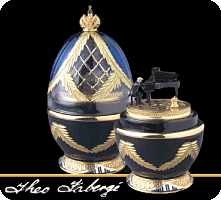
by Aidan Langston – 7.25.16
(NYIPC), is no stranger to the big stage—he’s been playing the piano since he was three years old. Sham, who is originally from Hong Kong, and is a rising sophomore enrolled in the dual-degree A.B.-master’s program with the New England Conservatory (NEC), won the competition’s first prize of $10,000, plus concert and recital appearances to come.
The competition has been held every other year since 2002, featuring pianists ages 16 to 21 from around the world. Its organizer is the Stecher and Horowitz Foundation, whose executive directors—Melvin Stecher and Norman Horowitz—started a music school in 1960. The two met as teens in 1951, and subsequently built a career together as a two-piano performing duo and as educators.
“I don’t think there are many organizations in the world that are musically oriented who have contributed [such] great talent to Harvard University as the Stecher and Horowitz Foundation,” Horowitz said. He explained that he and Stecher commissioned Walter Piston ’24, D.Mus. ’52, the renowned composer and former Naumburg professor of music, to write a concerto to celebrate Stecher and Horowitz’s tenth anniversary as a duo, which they performed for the first time in 1964. “So we’ve always had sort of a soft spot for Harvard,” Horowitz said.
Harvard in turn has been extremely well represented at the NYIPC: this year’s contestants, besides Sham, included two students who will matriculate at the College this coming semester, Evelyn Mo and Brian Le. Allen Yueh ’13 won the 2008 competition, and Daniel Kim ’19 came in second in 2014. Charlie Albright ’11, who won in 2006, was the first classical pianist accepted to the Harvard/NEC dual-degree program.
Stecher is especially proud of what he said is the competition’s unique format: the 22 contestants, selected from an applicant pool of around 150, are all winners. They are not eliminated over the course of the competition’s four rounds, and they all go home with prize money. “They come in, 22 young people who don’t know a thing about one another,” Stecher said, but when “they go home, they’re lifelong friends.”
Sham agreed. He appreciated that the contestants “didn’t take themselves too seriously.” The less competitive structure suited him, he said, adding, “I don’t particularly react strongly to winning or losing. I was glad, I guess, that my hard work was recognized.” He expects to participate in more competitions, calling them “the most straightforward way to get anywhere” for a pianist, but said “they’re not exactly what music was meant for.”
Sham started his piano career with lessons from his mother. When he was 14, he relocated to Britain to attend boarding school at Harrow. He has since been featured in a documentary called The World’s Greatest Musical Prodigies, given recitals on five continents, and performed for the president of China and the queen of Belgium; the most special occasion, he said, was his performance of an improvised birthday song for Sarah, duchess of York, at Windsor Castle. Horowitz said of him, admiringly, “He is really a small person, probably around five foot five, five foot six, very slight, and yet his sound is enormous. He has tremendous command of the keyboard; I don’t believe there’s any repertoire” that he would not be able to accomplish.
Sham said his career plans are still undecided. He expects to concentrate in economics, explaining, “All along, I’ve been very proud to do this best-of-both-worlds thing. I felt that doing piano alone would just leave me really bored.” He said Harvard has provided “a very good environment” for him to achieve balance between academics and music—he was even able to go to Europe five times last semester to pursue his piano career.
“Right now,” he added, “I’m trying to see where I can get in the next few years” with piano, and then “decide how much of it I will take on in the future.” His odds of making it in the music world are good, Stecher said, explaining that all but a few of the NYIPC’s past contestants have pursued successful music careers. One thing, Sham said, is certain: “I’ll be playing the piano for the rest of my life.”



